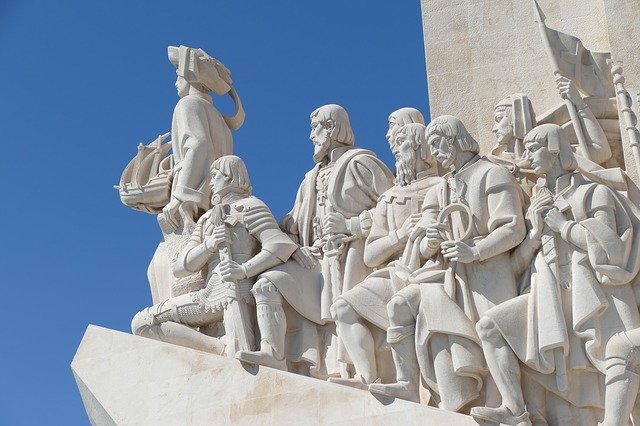
The following article is in English (Black) and Portuguese (Grey).
O seguinte artigo encontra-se em Inglês (Preto) e Português (Cinzento).
Just like in any other mainly catholic country, Portugal celebrates Christmas, the New Year, Easter and, like many other countries as well, Carnaval during Februrary.
More than that, Portugal has many holidays which no other country has (or very few have) and that you should probably learn about because if you either study or work here you probably won’t be doing so on these days.
So here is a list with 4 historical portuguese holidays:
Como em qualquer país maioritariamente católico, em Portugal é celebrado o Natal, o Ano Novo, a Páscoa e, assim também como muitos outros países, celebra-se o Carnaval em fevereiro.
Mais ainda, Portugal tem outros feriados que nenhum outro país celebra (ou então muito poucos o fazem) e os quais devem conhecer pois quer estudem ou trabalhem aqui, muito provavelmente não irão fazê-lo nestes dias.
Apresentámos então uma lista com 4 feriados históricos portugueses:
Carnation Revolution(25th of April) / A Revolução de Abril(25 de Abril)
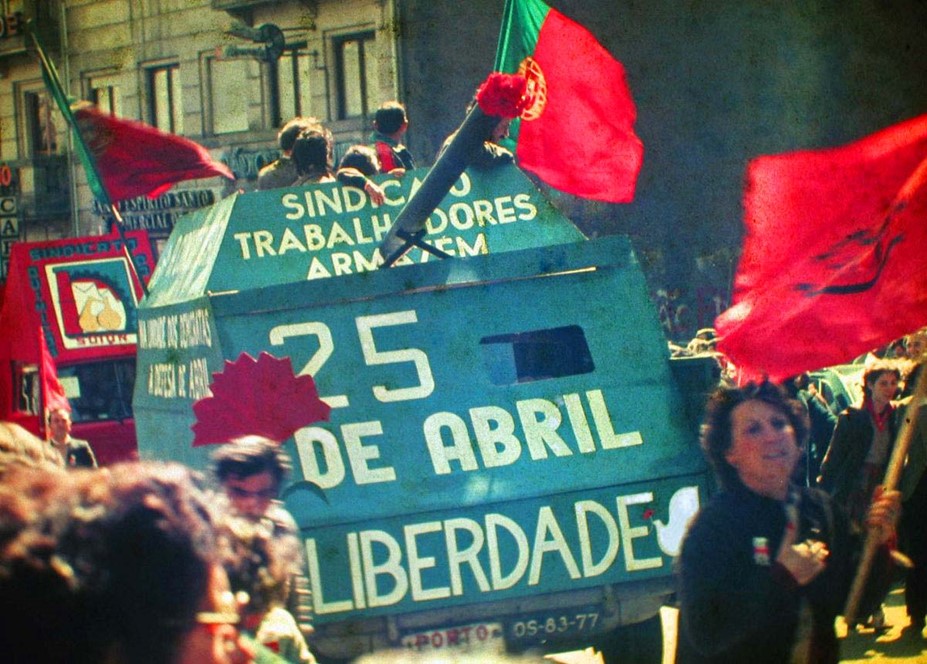
The April’s Revolution or also known as the Carnation Revolution is the celebration of a militar coup that happened in the 25th of April 1974, in Lisbon, that overthrew the authoritarian regime known as Estado Novo.
This led to a revolutionary period that resulted in a democratic Portugal with freedom of speech and so many other liberties that were taken from the people.
Why the name? Because this was a peaceful revolution, known for causing no deaths. Also, a florist named Celeste Caeiro, started offering carnations to the soldiers that placed them on their uniforms and also in the muzzles of their guns. Soon, this gesture spread as they celebrated the end of the authoritarian regime that also caused the end of the Portuguese Colonial War.
A Revolução de Abril, também conhecida como a Revolução dos Cravos, é a celebração de um golpe militar que aconteceu a 25 de abril de 1974, em Lisboa, que derrubou o regime autoritário do Estado Novo.
Tal levou a um período revolucionário que resultou num Portugal democrático com liberdade de expressão e muitas outras liberdades que foram negadas à população.
Porquê o nome? Porque esta foi uma revolução pacífica, conhecida por não ter resultado em mortes. Além disto, porque uma florista chamada Celeste Caeiro começou a oferecer cravos aos soldados que os usaram nos seus uniformes e nas suas armas. Este foi um gesto que rapidamente se disseminou enquanto decorriam as celebrações do fim do regime autoritário que também levou ao fim da Guerra Colonial portuguesa.
Portugal’s Day(10th of June) / Dia de Portugal(10 de Junho)
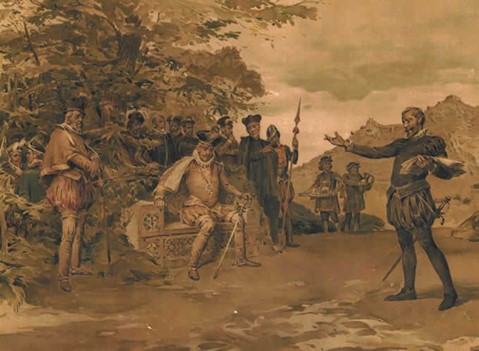
More known as the day of Portugal, Camões and the Portuguese Communities, this is a day dedicated to the death of Luís Vaz de Camões, a very famous portuguese author (known for writing “Lusíadas”) and also to the Portugal’s Guardian Angel. Moreover, this day also celebrates the portuguese language as well as the citizens and military forces.
During the authoritarian regime of Estado Novo (already mentioned on the 25th of April holiday) this day was celebrated as the Day of Race: the portuguese race or of the portuguese people.
Since Portugal already had colonies and has a strong portuguese community spread around the world, this holiday is also celebrated in Brazil, Toronto (Canada), Estremadura (Spain) and also London (United Kingdom).
Mais conhecido como o dia de Portugal, Camões e as Comunidades Portugueses, este é um dia dedicado à morte de Luís Vaz de Camões, um famoso autor português (conhecido pela sua obra “Os Lusíadas”) e também ao Anjo da Guarda de Portugal. Além disto, este dia também celebra a língua portuguesa, assim como os cidadãos e militares.
Durante o regime autoritário do Estado Novo (já mencionado no feriado do 25 de abril) este dia era celebrado como o Dia da Raça: portuguesa ou dos portugueses.
Uma vez que Portugal já teve colónias e continua a ter uma comunidade forte espalhada pelo mundo, este feriado também é celebrado no Brasil, em Toronto (Canadá), na Estrematura (Espanha) e em Londres (Reino Unido).
Proclamation of the portuguese Republic(5th of October) / Proclamação da República Portuguesa (5 de Outubro)
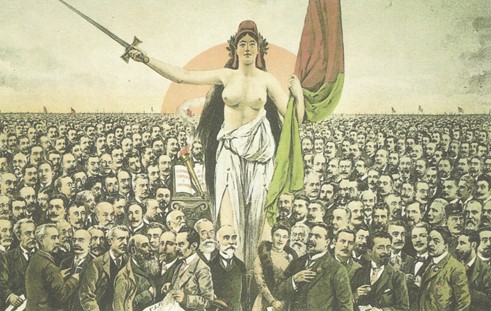
This holiday celebrates the revolution of the Portuguese Republican Party, initiated in the october 2th of 1910 and ended victorious by the 5th october 1910. The revolution led to the end of the constitutional monarchy and the beginning of a republican regime.
Between many changes, the national symbols were replaced such as the flag, the national anthem (both of which are still used today) and the coin.
Este feriado celebra a revolução do Partido Republicano português, tendo início a 2 de outubro de 1910 e término a 5 de outubro de 1910. Esta revolução levou ao fim da Monarquia Constitucional e ao começo do regime da república.
Entre muitas mudanças houve a substituição de símbolos nacionais, nomeadamente a bandeira, o hino nacional (ambos se mantêm-se até hoje) e a moeda.
Restoration of Independence (1st of December) / Restauração da Independência(1 de Dezembro)
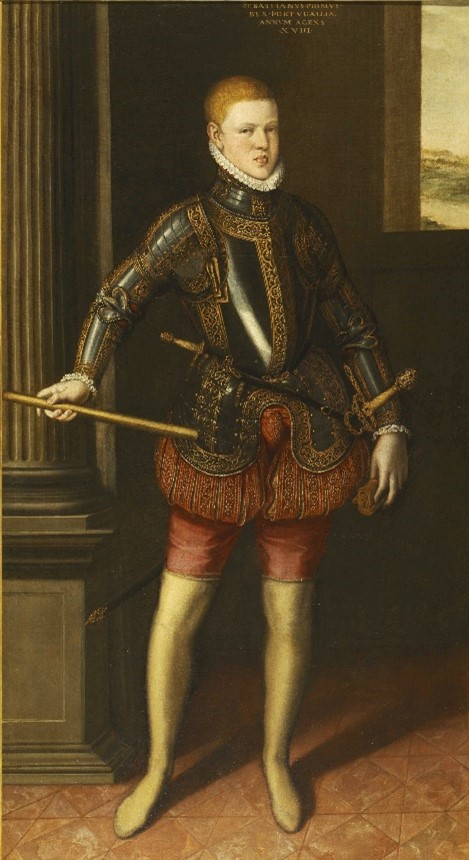
Also known as the Restoration of Portugal, this was a process that led to the portuguese authonomy with the end of the Iberian Union (between Portugal and Spain from 1580 until 1640).
The Union happened since Portugal had no royal heir to the throne after the disappearence of the king D. Sebastião during the Alcácer Quibir battle at Africa. So, Filipe II of Spain was eventually declared king Filipe I of Portugal, and so the beggining of the Iberian Union.
This holiday has been celebrated since the second hald of the XIX century, being the oldest holiday celebrated in Portugal.
Também conhecido como a Restauração de Portugal, este é um dia que celebra o processo que culminou na autonomia de Portugal após anos na União Ibérica (com Espanha entre 1580 até 1640).
A união aconteceu após o desaparecimento do rei D. Sebastião, durante a batalha de Alcácer Quibir, que levou a que Portugal ficasse de um herdeiro legítimo para o trono. Consequentemente, o rei Filipe II de Espanha foi eventualmente declarado rei Filipe I de Portugal, dando-se assim início à União Ibérica.
Este feriado tem sido celebrado desde a segunda metade do século XIX, sendo assim o feriado mais antigo celebrado em Portugal.




